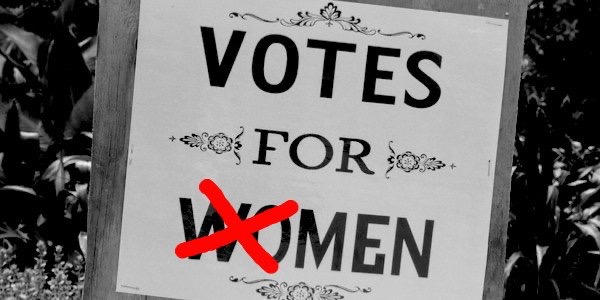The Details Missing in Women’s History Month
Women’s History Month is a yearly recognition in March to celebrate the achievements, commitments, struggles, and authentic historical contributions of women. This celebration is an opportunity to feature the accomplishments of women across different fields, from science and governmental issues to expressions in other areas. It has the potential to remove stereotypes that have long held women back and can present important changes to social policies both now and in the future. Women faced horrible circumstances in the past and are now burdened with taking care of children in war zones and often without a supporting companion. One thing that is often missing from the histories of women during this period is the important details.
We have two versions of American History, one is written in the form of myths, half-truths, omissions, lies, distortions, and erasures, and the other is often unwritten and full of surprises.Women’s history and all of the other people of color histories are mostly untold, or distorted if told at all. An example of this is the fact that when women were finally given the right to vote in 1920 it did not fully include Black women. After the Nineteenth Amendment was casted into law in 1920, people of color casted votes in political races and held political offices in limited ways. Notwithstanding the 1920 Federal Act enshrined in the 19th Amendment, many states passed regulations that victimized African American women and restricted their opportunities to vote. Women belonging to Native tribes also did not receive the vote with the Nineteenth Amendment as they were not considered U.S. citizens until the passage of the Snyder Act in 1924, also called the “Indian Citizenship Act of 1924. Even with these laws passed, southern bigots found ways to deny women the vote using poll taxes, literacy tests, and violence.
However, the 19th Amendment looked completely different to People of color where Jim Crow regulations took steps to keep them off the voting lists. For Black Women, the 19th Amendment wasn’t the end of the struggle like it was for White Women, for America gave the vote to White women and not to Black women or Black men. The 19th Amendment was a catalyst that denoted the beginning of another battle. In the decades to follow, American politicians would hold on to the idea of denying citizenship to Black people. Black women around the country who had fought for the 19th Amendment were often betrayed by the White women’s movement that would not fight for voting rights for Black women with the same vigor that they fought with for their freedom.
Black women kept up the fight and meet in groups to fight for full citizenship. They fought to remove racist obstacles and hesitant court houses that did not want them to vote. Watch how this history is denied when political leaders talk about the 19th Amendment—they leave out the real facts either out of ignorance or in an effort to create a fake American history. Black women tried to make real the promise of the nineteenth Amendment by uncovering its racist limitations. For Black women, affirmation of the Nineteenth Amendment was not an assurance of the vote, but rather it was a point to fight on. Casting a ballot relied upon state regulation and the whims of white supremacist authorities. Racists sought to deny Black women the rights due. Black women were the new fighters for the promise of a real law that would allow them to vote that the White women’s movement sought to ignore.






